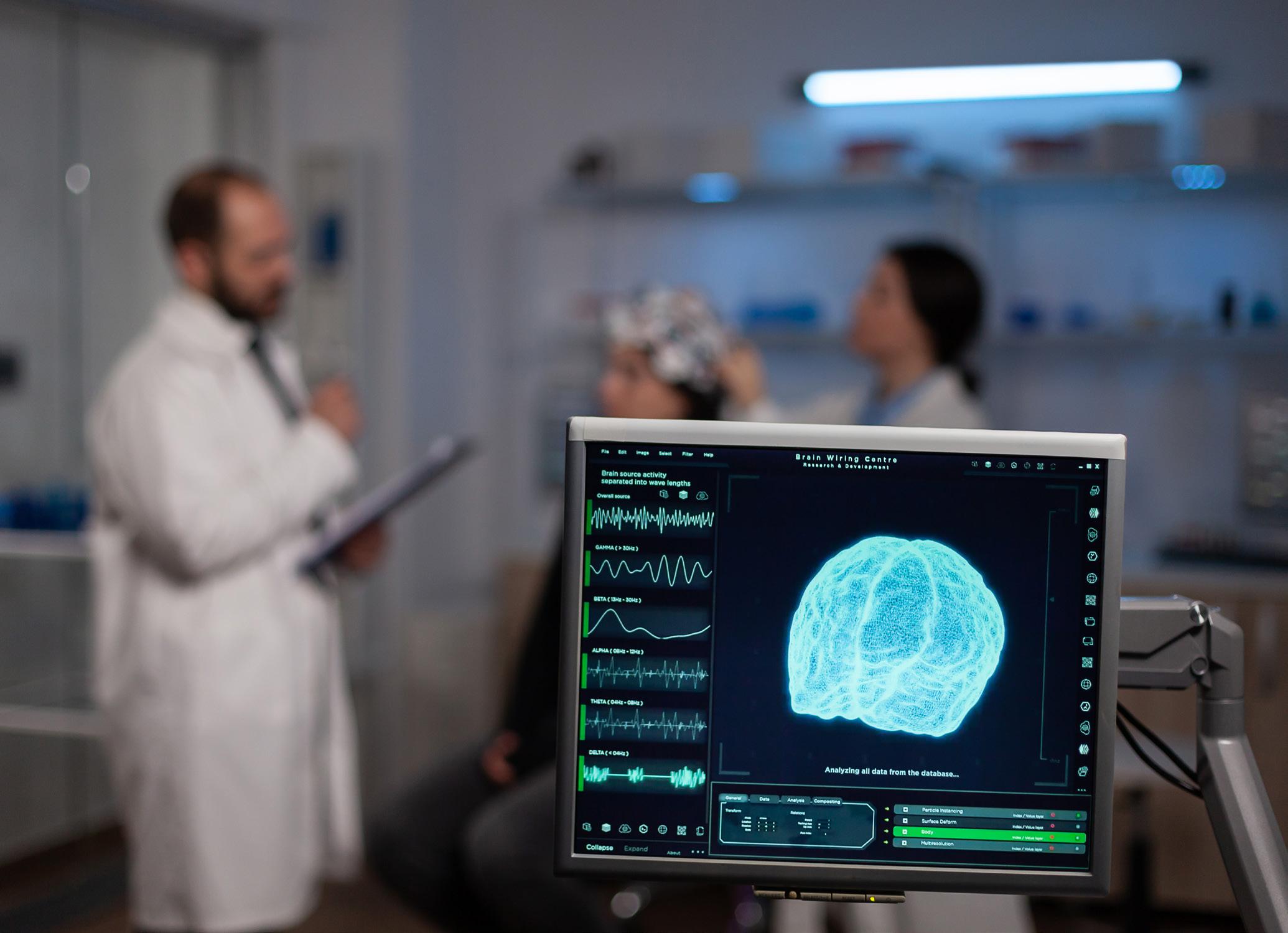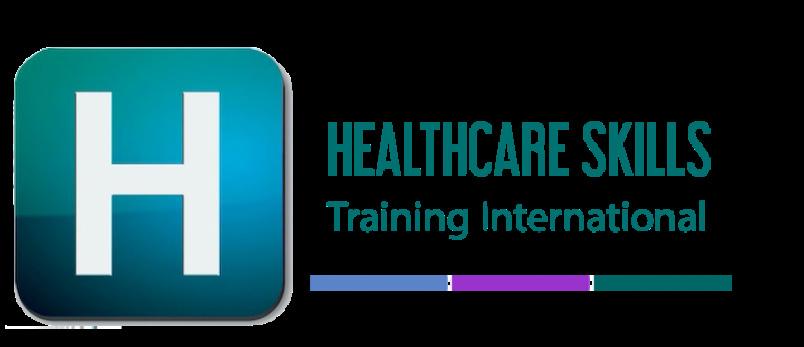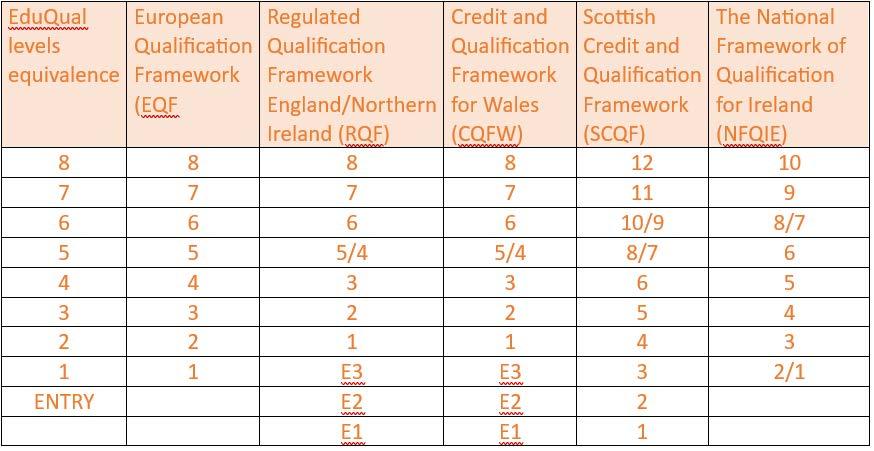




Introduction
PG Diplomas Short Courses
Programme
Syllabus
Faculty Biographies
Accelerated Professional Development
EduQual
Training Venues

The objective of the Neuroscience Strategies course is to understand the underlying neuromechanisms involved in misunderstanding, miscommunication or resistance to change that impact on decision making, clinical practice and may undermine good outcomes. The programme reviews the key factors relevant to the delivery of healthcare services from a neuroscience perspective in order to avoid common errors in patient care, enable more effective and efficient outcome management, and maintain situational awareness underpinned by emotional intelligence.
This course will enable the participants:
• To gain and apply knowledge of neuroscience strategies and human factors and their underlying mechanisms
• To avoid common errors in the delivery of patient care/healthcare services
• To successfully manage professional communications in a sensitive, effective and positive manner
• To develop and deliver an action plan integrating the relevant human factors, viewed through a lens of emotional intelligence, into routine practice
A variety of teaching approaches are utilised to support the course outcomes, these are:
• Lectures
• Group activities and discussions
• Practical skills and workshops
• Supportive role plays/deliberate practice
• Assessment and appraisal
Specific care is taken in the pre-course preparation, delivery and follow-up to facilitate an optimal transfer of the course knowledge and skills directly into the individual learner’s professional situation.
This Post Graduate Diploma in Neuroscience Strategies is part of a suite of three individual professional qualifications that can be taken separately or together:
1. PG Diploma in Clinical Education
2. PG Diploma in Neuroscience Strategies
3. PG Diploma in Clinical leadership
WHETHER you are a clinician with a teaching role as part of your professional responsibility or an employee of a medical device company who has a responsibility to provide support to clinical teams, our courses provide the additional skills for professional development (PD) in these respective roles.
All Health Care Skills Training International learning programmes are tailored to the PD requirements of those undertaking them and they conform to their respective professional disciplines and specialties.

Furthermore, our courses are delivered by experts with the defining knowledge and experience in their fields.
Our success as an educational institution delivering externally regulated and quality assured short course qualifications is recognised.
How do we do this? For example, how can we deliver a Postgraduate Diploma learning programme over a short period of time? The answer lies in the level of entry to our courses. Delegates registering for our short course qualifications are professionals who have Accredited Prior Learning (APL) or Recognised Prior Learning (RPL) evidence that is verifiable, at degree level or above. The PG Dip in Clinical Education, for example, has been approved by EduQual as being commensurate with Level 7 (Postgraduate) Qualifications in the United Kingdom.
This course is a vocational qualification and is open only to those who have recognised prior learning in their specialty and have a responsibility for support or training ie a medical, nursing or healthcare related degree.
All our qualifications are externally quality assured and awarded by EduQual. They are recognised by Ofqual in England, by Qualifications Wales, the Council for the Curriculum, Examinations and Assessment (Northern Ireland) and by the Scottish Qualifications Authority (SQA).
EduQual qualifications consist of Awards, Certificates and Diplomas – each with a Total Qualification Time in learning hours of 120 hours, 121-369 hours and 370 plus hours respectively. These hours take in to account the APL and RPL.
Health Care Skills Training International is a fully registered and accredited training institution delivering sector-leading courses and officially recognised and externally regulated qualifications to medical professionals and to healthcare industry employees who are required to interact with them.
With HCST, every day is a school day.

Course Overview 9:00
Introduction to Human Factors and Neuroscience
Managing clinical outcomes: Facilitating the optimal patient pathway
Situational Awareness
What is situational awareness?
How do you know if you have it or not?
Good Situational Awareness Begins with Self-Awareness
Neural mechanisms involved in situational awareness
COFFEE
Decision Making
What factors contribute to good decision making?
How to deal with decisions that go wrong
LUNCH
Decision Making: ‘under the hood‘
Neural mechanisms involved in decision making
Ten basic instincts
Brain-Friendly Strategies & Outcome
Management
Staying alert and engaged
Mindfulness-quieting the amygdala
Resilience and hitting the ‘pause button’ to perform better
Avoiding ‘toxic positivity’
‘Keeping your head when others are losing theirs’
Summary & Closing of the Day
Questions and reflections
Self study
Brief for Day 2
CLOSE 17:00
Opening Session 9:00
Review of Day 1 – Each learner to present 1 minute on 1 (assigned) topic from day 1
From internal to external – one brain to two brains
Communication
Communicating clearly – what can go wrong
What makes it easy to speak up
Neuroscience-Communication Strategy
How to express yourself assertively
The skill of reflective listening & descriptive praise
COFFEE
Managing the Speech Chain
Communication skills – knowledge and practice
Integrating Human Factor Skills into Routine Practice1
Putting theory into practice
LUNCH
Integrating Human Factor Skills into Routine Practice: 2
Identifying personal values and strengths
Consolidation/Review
CLOSING SESSIONS
Course review
Planning application of learning in practice
Course assessment brief
CLOSE 16:30
The course develops the knowledge and skills required for an understanding of Neuroscience and Human Factors The qualification establishes the professional competencies necessary to identify the nature of Neuroscience and Human Factors and develop strategies for individual Healthcare professionals, alone and in a team, to use awareness of these factors to avoid common errors in the process of care and develop emotional intelligence The programme builds on the principles of Clinical Education. It specifically tests and improves the delegates’ understanding of human factors, identifies the underlying neural-mechanisms and shows how understanding the neuroscience of human interactions can lead to compassionate leadership, improved patient outcomes and sustainable, strong clinical teams.This qualification is for those who have recognised prior learning in their specialty and have a responsibility for support or training ie a medical, nursing or healthcare-related degree including all clinicians, GPs, veterinarians, senior hospital managers and dentists. For more information on courses, dates, and fees please visit: https://healthcareskills.com/courses/
• How do delegates use this knowledge to develop emotional intelligence and avoid errors in care?
•What are Human Factors and the underlying neural mechanisms?
• How do they impact on Healthcare Delivery?
•How will delegates teach these elements to other Healthcare professionals?

Participants will be asked to:
• Deliver a lecture/lead a discussion on Human Factors and Neuroscience
• Identify changes in practice based on an understanding of Human Factors and Neuroscience
• Produce a plan to introduce changes based on course content
• Complete a knowledge-based examination on course content
The Faculty will address the areas of neuroscience, communication skills and professional and clinical education. The faculty will be individuals with the defining experience and are qualified in the field of Human Factors and Neuroscience. They will also have a remit for the education of other relevant professionals.
This meets the QAA (Qualifications Assurance Agency) for higher education equivalences of:
7 Display mastery of complex and specialised Conduct research, or advanced Accept accountability in area of knowledge and skills. technical or professional activity, related decision-making using and modifying advanced including use of supervision. Demonstrate expertise in highly skills and tools. specialised and advanced technical
Take significant professional and/or research skills. Design and apply appropriate responsibility for the work of research methodologies. other professional staff, lead Communicate results of research and initiate activity. to peers.
Develope new skills to a high level, including novel and emerging techniques. Act in a wide variety of unpredictable and advanced professional contexts.
A systematic understanding of knowledge, and a critical awareness of current problems and/or new insights, much of which is at, or informed by, the forefront of their academic discipline, field of study or area of professional practice.
• A comprehensive understanding of techniques applicable to their own research or advanced scholarship
• Originality in the application of knowledge, together with a practical understanding of how established techniques of research and enquiry are used to create and interpret knowledge in the discipline
• To evaluate critically current research and advanced scholarship in the discipline
• To evaluate methodologies and develop critiques of them and, where appropriate, to propose new hypotheses
• Deal with complex issues both systematically and creatively, make sound judgments in the absence of complete data, and communicate their conclusions clearly to specialist and non-specialist audiences
• Demonstrate self-direction and originality in tackling and solving problems, and act autonomously in planning and implementing tasks at a professional or equivalent level
• Continue to advance their knowledge and understanding, and to develop new skills to a high level
It is a pre-course requirement that delegates must be a qualified clinician or have held a senior role in medical device or pharma industry for five years.
With more than 35 years experience in the healthcare medical devices industry, Diane worked for major multinationals whose products became market leaders in the UK and worldwide Since 1989, Diane has focused on new surgical technologies and development of the required training courses for the medical device industry ,surgeons and clinical teams to support advances in surgical technique. Health Care Skills Training International is a registered EduQual Centre delivering professional healthcare qualifications that are internationally recognised.

Anne’s career spans over 30 years in the perioperative field. She has held the positions of Lead Nurse for Theatres, and Day Surgery and in Education as a Professional and Practice Development Senior Charge Nurse. She has also been involved over many years in heightening perioperative staffs’ awareness of latex allergy within the perioperative environment through development of protocols, policies and publications. She is also involved in developing and implementing bespoke training courses for several high profile Medical Companies.
Denise began a career in clinical research, service, management and education in the field of communicative disorders at The Cleveland Clinic Foundation in the USA, over 35 years ago. She has worked in both public and private healthcare, the medical device industry and in graduate degree, as well as professional education, including serving as an assessor of clinical competence and external examiner for professional organisations, hospitals and universities in the USA, UK/Europe, Middle East, Africa, Latin America and Australia for surgeons, clinicians and industry professionals.1.
Jacki worked for the NHS for 38 years, and for the last twenty years as a Consultant Surgeon. She was the first Colorectal - trained surgeon appointed to her area, which had high levels of deprivation. She retained a pragmatic and cost-efficient approach to healthcare, expanding much-needed lower GI services by training nurses in extended roles. She initiated training of nurse colonoscopists in her region, which led to a new service of ‘direct-to-test’ GP referrals being established. Jacki has been teaching post graduate education for both the NHS/ Private sector and Healthcare Industry with Health Care Skills Training International since 2000. Jacki became Medical Director in 2023.
Graham retired from full time clinical activity in June 2015 and continues to be involved part time in appraisal and training to support the service. He has a long-standing interest in surgical education and training and continues to be active in the Royal College of Physicians and Surgeons in Glasgow and Academy of Clinical Educators as a senior college clinical educator. Graham was a member of the Patient Safety Board of the Royal College of Surgeons, Edinburgh and continues as a member of the Non-Technical Skills for Surgeons faculty. He is Chairman of the Joint Surgical Colleges Fellowship Examination board in general surgery.
Those who have completed our courses include:
•Practicing medics (surgeons, physicians, all medical practitioners), dentists and veterinarians
• Pharmacists
• Nurses
•Medical Device company representatives
•Regulatory personnel in companies that manufacture, sell or place medical devices on the market
The outcomes for those who successfully complete them are:
•Understanding of what constitutes best practice and key skills in a clinical/technical environment
•A firm grasp of legal obligations in hospital and clinical settings
• An ability to assimilate the expectations of members of the clinical team
•The acquisition of skills that will help to improve training approaches and skills to maximise clinical output
•An understanding of detailed regulatory requirements and implications of medical device legislation
•The potential to develop their skill sets to a level of medical device formal/corporate sign-off
•An understanding of obligations relating to the sale of and correct patient use of medical devices and required reporting/record-taking
All those who take part in our courses are able to legitimately demonstrate a level of competence that meets all relevant professional requirements reflecting the national qualifications framework.
Health Care Skills Training provide the following qualifications framework that is Training defined by national standards and meets all relevant requirements and registration systems.
Health Care Skills Training International ensure that the highest ethical, legal and teaching standards are maintained through the delivery of our professional qualification programmes.
Medical Director, Healthcare Skills Training International

In the United Kingdom, there are four government-sponsored qualifications regulators:
•Council for the Curriculum, Examinations and Assessment (CCEA)
•Office of Qualifications and Examinations Regulation (Ofqual)
•Qualifications Wales (QW)
•SQA-Accreditation (SQA)
EduQual is recognised as an awarding body by SQA-Accreditation- you can find us on the SQAAccreditation list of approved awarding bodies here
The Scottish Credit and Qualifications Framework (SCQF) is a partnership whose members include the Quality Assurance Agency for Higher Education, College Development Network, SQA and Universities Scotland. Many EduQual qualifications are credit-rated for the SCQF and are listed on the SCQF Qualifications Database
The Quality Assurance Agency for Higher Education (QAA) work across all four nations of the United Kingdom to protect the standards and improve the quality of higher education. The QAA have produced a guide to comparing qualifications across the UK and Europe, including the Ofqual Regulated Qualifications Framework (RQF) and the Scottish Credit and Qualifications Framework (SCQF)
EduQual qualifications are recognised by universities, professional membership bodies and many other stakeholders in the UK and beyond.

Holders of EduQual qualifications can ‘top-up‘ to degrees at First and Master‘s degree level (SCQF Level 11/RQF Level 7) awarded by many British and international universities, including, but not limited to:
•Anglia Ruskin University
•Bath Spa University
•Binary University of Business and Entrepreneurship (Malaysia)
• University of Bedfordshire
•University of Chester
•University of Dundee
•University of East London
•Edinburgh Napier University
•London Metropolitan University
•Newman University
•University of Northampton
•University of South Wales
Holders of EduQual qualifications can also obtain exemptions from professional membership bodies
EduQual qualifications are based on the EduQual Qualification Framework (EdQF), which consists of Awards, Certificates and Diplomas and which follows guidance set by Ofqual, the regulator for qualification in England.
The title within a qualification (eg ‘Award‘) is not an indication of its level, but of the Total Qualification Time (TQT), in learning hours, required to pursue and achieve a specific qualification.
Award TQT is <120 hours
Certificate TQT is 121 to 369 hour
Diploma TQT is >370 hours
The level of a qualification identifies the demand made on the student for knowledge skills an understanding. GCE A Level/Scottish Highers are at RQF level 3/SCQF Level 6 whilst postgraduate work is at Master‘s Degree Level RQF Level 7/SCQF Level 11. The table below shows the correspondence of levels established between national qualifications frameworks and the European Qualifications Framework (EQF)

Achievement at level 7 reflects the ability to reformulate and use relevant understanding, methodologies and approaches to address problematic situations that involve many interacting factors. It includes taking responsibility for planning and developing courses of action that initiate or underpin substantial change or development, as well as exercising broad autonomy and judgment. It also reflects an understanding of relevant theoretical and methodological perspectives, and how they affect their area of study or work.
Achievement at level 6 reflect the ability to refine and use relevant understanding, methods and skills to address complex problems that have limited definition. It includes taking responsibility for planning and developing courses of action that are able to underpin substantial change or development as well as exercising broad autonomy and judgement. It also reflects an understanding of different perspectives, approaches or schools of thought and the theories that underpin them.
Achievement at level 5 reflects the ability to identify and use relevant understanding, methods and skills to address broadlydefined, complex problems. It includes taking responsibility for planning and developing courses of action as well as exercising autonomy and judgment within broad parameters. It also reflects understanding of different perspectives, approaches or schools of thought and the reasoning behind them.
Achievement at level 4 reflects the ability to identify and use relevant understanding, methods and skills to address problems that are well defined but complex and non-routine. It includes taking responsibility for overall courses of action as well as exercising autonomy and judgment within fairly broad parameters. It also reflects understanding of different perspectives or approaches within an area of study or work.
Achievement at level 3 reflects that ability to identify and use relevant understanding, methods and skills to complete tasks and address problems that, while well defined, have a measure of complexity. It includes taking responsibility for initiating and completing tasks and procedures as well as exercising autonomy and judgment within limited parameters. It also reflects awareness of different perspectives or approaches within an area of study or work.
Achievement at level 2 reflects the ability to select and use relevant knowledge ideas, skills and procedures to complete welldefined tasks and address straightforward problems. It includes taking responsibility for completing tasks and procedures and exercising autonomy and judgment subject to overall direction or guidance.
Achievement at level 1 reflects the ability to use relevant knowledge, skills and procedures to complete routine tasks. It includes responsibility for completing tasks and procedures subject to direction or guidance.
Achievement at Entry level reflects progress towards making use of skills, knowledge and understanding (i) that relate to the immediate environment, or (ii) to carry out simple familiar tasks and activities with guidance, or (iii) to carry out structured tasks and activities with guidance.


GOLDEN JUBILEE NATIONAL HOSPITAL, National Waiting Times Centre Board, Golden Jubilee National Hospital, Beardmore Street, Clydebank, G81 4SA, UK.
HOSPITAL NISA 9 DE OCTUBRE, Valle de la Ballestera 59, 46015 Valencia, Spain.
LEITER HOTELLERIE, Spital und Gesundheitszentrum SANITAS, Grütstrasse 60, 8802 Kilchberg, Switzerland.
LA SALLE CENTRO UNIVERSITARIO C/ La Salle, 10, 28023 Madrid, Spain.
HOSPITAL NISA PARDO DE ARAVACA, La Salle, 12, 28023 Madrid, Spain.
NISA SEVILLA ALJARAFE HOSPITAL, Avda. Plácido Fernández Viagas, s/n 41950 Castilleja de la Cuesta Sevilla, Spain.
ADDENBROOKE’S HOSPITAL Cambridge University Hospitals, Hills Road, Cambridge, CB2 0QQ.


West of Scotland Science Park
Kelvin Campus Block 7, Unit 2 2317 Maryhill Road
Glasgow G20 0SP
T: +44(0) 141 946 6482
E: office@healthcareskills.com

www.healthcareskills.com
